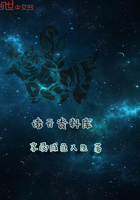It was a scattered village of shabby little cottages, with a main street that was a wallow of black mud from the last late spring rain. The sidewalks bumped up and down in uneven steps and landings. Everything seemed un-American. The names on the strange dingy shops were unspeakably foreign. The one dingy hotel was run by a Greek. Greeks were everywhere--swarthy men in sea-boots and tam-o'-shanters, hatless women in bright colors, hordes of sturdy children, and all speaking in outlandish voices, crying shrilly and vivaciously with the volubility of the Mediterranean.
"Huh!--this ain't the United States," Billy muttered. Down on the water front they found a fish cannery and an asparagus cannery in the height of the busy season, where they looked in vain among the toilers for familiar American faces. Billy picked out the bookkeepers and foremen for Americans. All the rest were Greeks, Italians, and Chinese.
At the steamboat wharf, they watched the bright-painted Greek boats arriving, discharging their loads of glorious salmon, and departing. New York Cut-Off, as the slough was called, curved to the west and north and flowed into a vast body of water which was the united Sacramento and San Joaquin rivers.
Beyond the steamboat wharf, the fishing wharves dwindled to stages for the drying of nets; and here, away from the noise and clatter of the alien town, Saxon and Billy took off their packs and rested. The tall, rustling tules grew out of the deep water close to the dilapidated boat-landing where they sat. Opposite the town lay a long flat island, on which a row of ragged poplars leaned against the sky.
"Just like in that Dutch windmill picture Mark Hall has," Saxon said.
Billy pointed out the mouth of the slough and across the broad reach of water to a cluster of tiny white buildings, behind which, like a glimmering mirage, rolled the low Montezuma Hills.
"Those houses is Collinsville," he informed her. "The Sacramento river comes in there, and you go up it to Rio Vista an' Isleton, and Walnut Grove, and all those places Mr. Gunston was tellin' us about. It's all islands and sloughs, connectin' clear across an' back to the San Joaquin. "
"Isn't the sun good," Saxon yawned. "And how quiet it is here, so short a distance away from those strange foreigners. And to think! in the cities, right now, men are beating and killing each other for jobs."
Now and again an overland passenger train rushed by in the distance, echoing along the background of foothills of Mt.
Diablo, which bulked, twin-peaked, greencrinkled, against the sky. Then the slumbrous quiet would fall, to be broken by the far call of a foreign tongue or by a gasoline fishing boat chugging in through the mouth of the slough.
Not a hundred feet away, anchored close in the tules, lay a beautiful white yacht. Despite its tininess, it looked broad and comfortable. Smoke was rising for'ard from its stovepipe. On its stern, in gold letters, they read Roamer. On top of the cabin, basking in the sunshine, lay a man and woman, the latter with a pink scarf around her head. The man was reading aloud from a book, while she sewed. Beside them sprawled a fox terrier.
"Gosh! they don't have to stick around cities to be happy," Billy commented.
A Japanese came on deck from the cabin, sat down for'ard, and began picking a chicken. The feathers floated away in a long line toward the mouth of the slough.
"Oh! Look!" Saxon pointed in her excitement. "He's fishing! And the line is fast to his toe!"
The man had dropped the book face-downward on the cabin and reached for the line, while the woman looked up from her sewing, and the terrier began to bark. In came the line, hand under hand, and at the end a big catfish. When this was removed, and the line rebaited and dropped overboard, the man took a turn around his toe and went on reading.
A Japanese came down on the landing-stage beside Saxon and Billy, and hailed the yacht. He carried parcels of meat and vegetables; one coat pocket bulged with letters, the other with morning papers. In response to his hail, the Japanese on the yacht stood up with the part- plucked chicken. The man said something to him, put aside the book, got into the white skiff lying astern, and rowed to the landing. As he came alongside the stage, he pulled in his oars, caught hold, and said good morning genially.
"Why, I know you," Saxon said impulsively, to Billy's amazement.
"You are...."
Here she broke off in confusion.
"Go on," the man said, smiling reassurance.
"You are Jack Hastings, I 'm sure of it. I used to see your photograph in the papers all the time you were war correspondent in the Japanese-Russian War. You've written lots of books, though I've never read them."
"Right you are," he ratified. "And what's your name?"
Saxon introduced herself and Billy, and, when she noted the writer's observant eye on their packs, she sketched the pilgrimage they were on. The farm in the valley of the moon evidently caught his fancy, and, though the Japanese and his parcels were safely in the skiff, Hastings still lingered. When Saxon spoke of Carmel, he seemed to know everybody in Hall's crowd, and when he heard they were intending to go to Rio Vista, his invitation was immediate.
"Why, we're going that way ourselves, inside an hour, as soon as slack water comes," he exclaimed. "It's just the thing. Come on on board. We'll be there by four this afternoon if there's any wind at all. Come on. My wife's on board, and Mrs. Hall is one of her best chums. We've been away to South America--just got back; or you'd have seen us in Carmel. Hal wrote to us about the pair of you."















